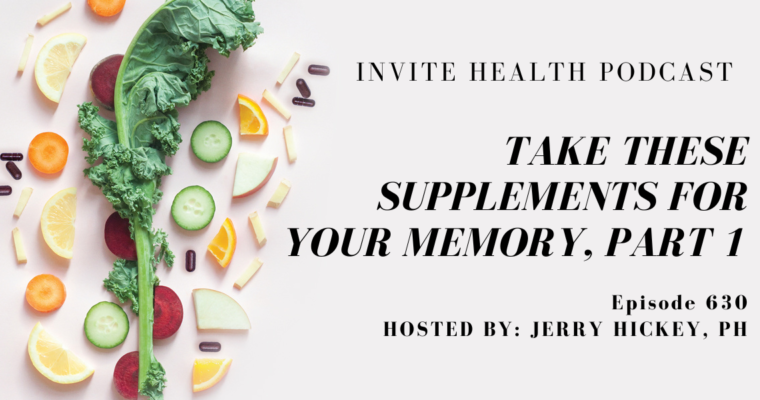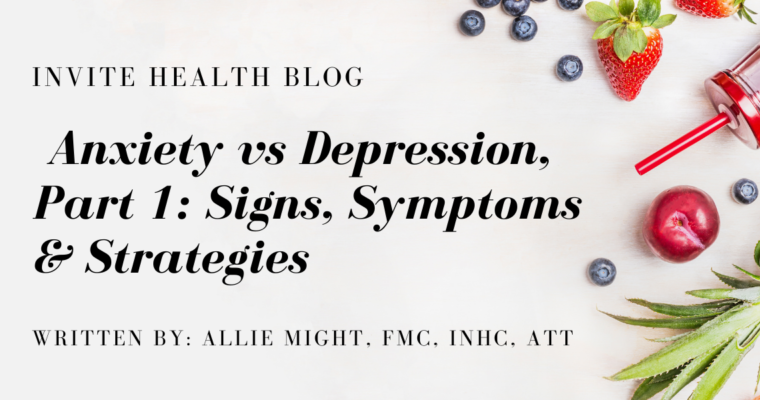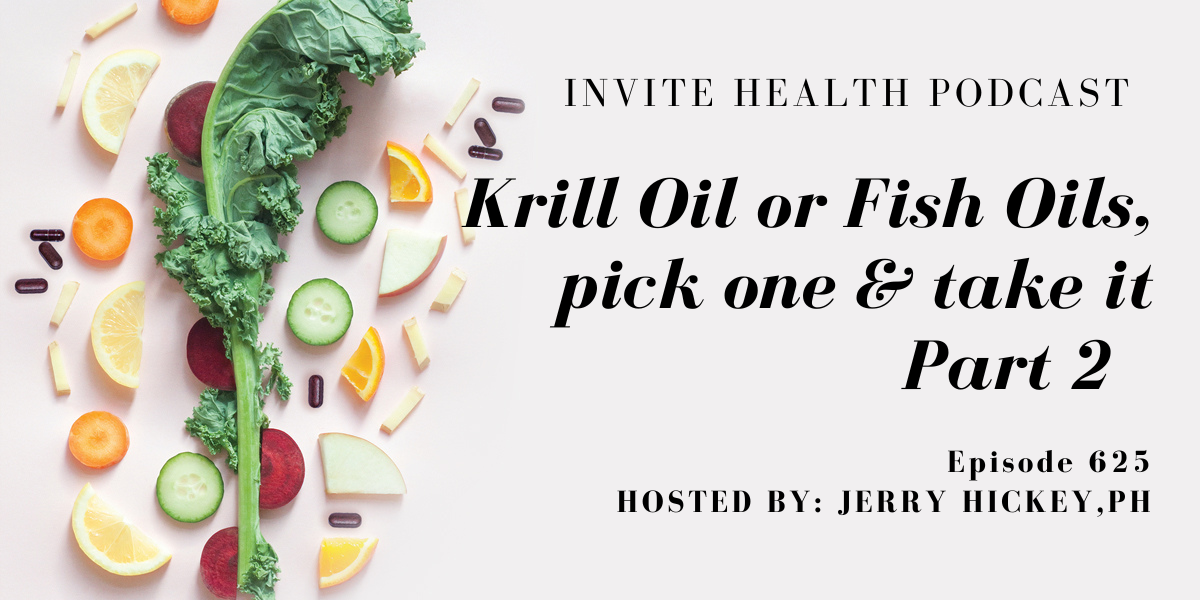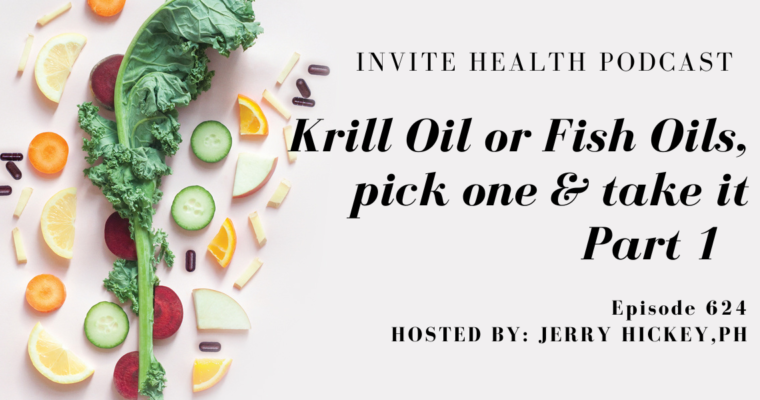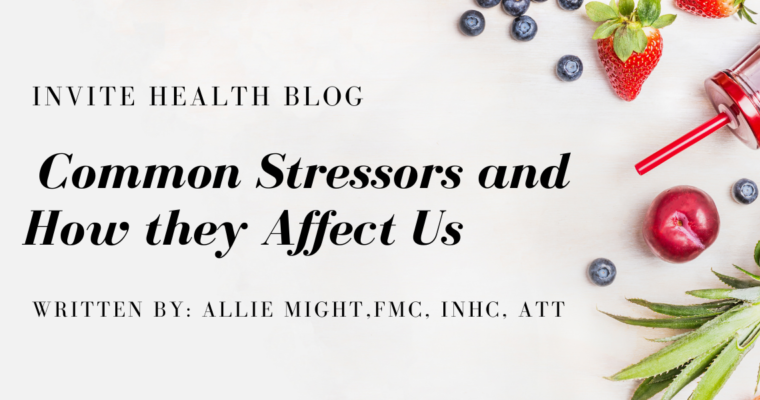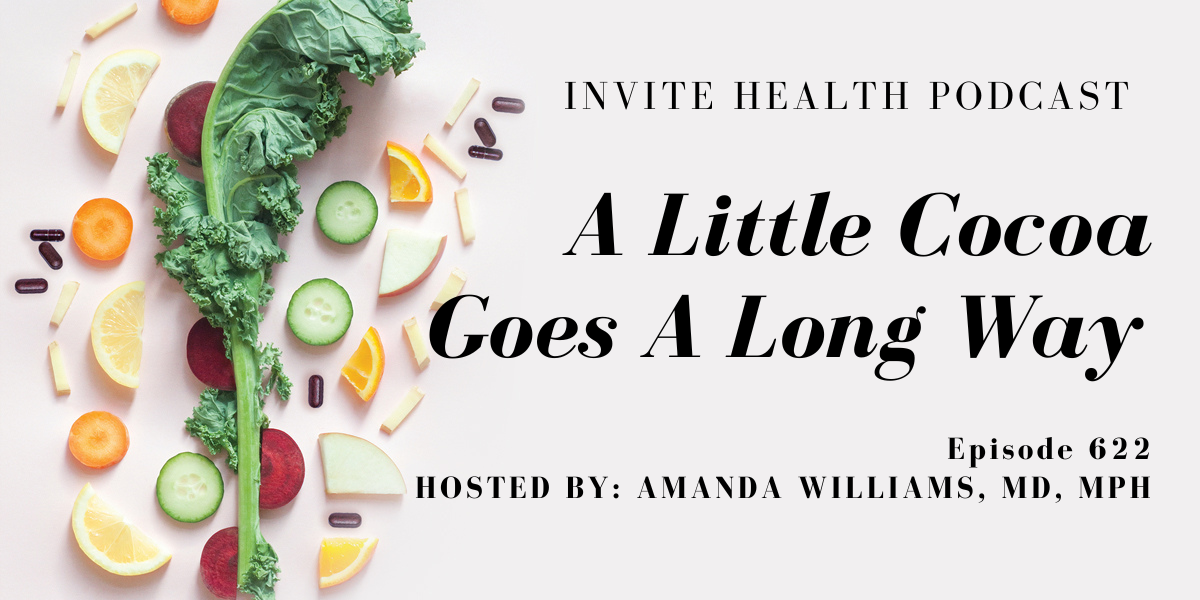Subscribe Today!
Please see below for a complete transcript of this episode.
KRILL OIL, OR FISH OIL. PICK ON AND TAKE IT- PART 2. INVITEⓇ HEALTH PODCAST, EPISODE 625
Hosted by Jerry Hickey, Ph.

*Intro Music*
InViteⓇ Health Podcast Intro: [00:00:04] Welcome to the InVite Health podcast, where our degreed health care professionals are excited to offer you the most important health and wellness information you need to make informed choices about your health. You can learn more about the products discussed in each of these episodes and all that Invite Health has to offer, at www.invitehealth.com/podcast. First time customers can use promo code podcast at checkout for an additional 15% off your first purchase. Let’s get started. † [00:00:34]
*Intro Music*
Jerry Hickey, Ph: [00:00:40] Welcome to part two of my podcast episode Krill or Fish Oils. Pick one and take it. Now, I did say that I prefer Krill to fish oils. Either one is great, either supplement is fantastic. If you get a good quality Krill or good quality fish oil. I prefer Krill because there’s additional ingredients. In fact, in the first part of this episode, which was about 20 minutes, I explained that in Krill you have a combination of ingredients that work as a bulletproof vest for your brain cells later in life, and that’s extremely important. I explain that when we’re young, we have this powerful available pool of antioxidants that shields our brain from free radicals, and these antioxidants really start to decline in our fifties, and they’re pretty much gone by the summer, about 65. And that’s a problem, I mentioned at the brain is a super high energy organ. It uses oxygen and sugar for energy. And as a consequence of that, it leaks out a little bit of free radicals. Free radicals are very destructive. So, when you’re young, you have these antioxidants that are the antidote to free radicals, they snuff them out. When you’re older, you lack these antioxidants, you don’t have as much, and the free radicals tend to worsen in number. And the violence to the brain is not good and it contributes to true deterioration of brain function and even the onset in some people of dementias and other neurological diseases like movement disease, Parkinson’s disease, which can also be accompanied by Parkinson’s dementia, so it’s not good. So, Krill does have an antioxidant for the brain called astaxanthin, this pink antioxidant. Krill does have phosphatides and fish oils that also snuff out the inflammation created by free radicals. So, it’s not the direct antidote to free radicals, but it helps to mitigate the inflammation caused by the free radicals. But the Krill makes plasmalogens, and plasmalogens will kind of step up to the plate and act as a buffer against the free radicals that are occurring in your brain. They’re made out of the ingredients that you find in Krill, the phosphatides, there’s a whole range of phosphatides in Krill, probably the most important one is phosphatidylcholine, but there’s also phosphatidylethanolamine, phosphatidylinositol, phosphatidylserine, and others that are smaller in concentration. You also get the fish oils, and you get the choline, and together these create the plasmalogens that work as a shield for the brain cells. † [00:03:22]
[00:03:23] So phosphatidylcholine is abundant in Krill. You could get phosphatidylcholine in soy foods, and you could get phosphatidylcholine in beans. But phosphatidylcholine is abundant in high quality Krill products, so make sure you get a one of the Krills. There’s several on the market that have been used in a great deal of human clinical research. We know they work; we know they’re good, we know they’re fresh. The phosphatidylcholine creates the casing of your brain cell, it’s called a cellular membrane. And the Phosphatidylcholine opposes something called phosphatidylserine, which literally gives life to your nerve tissue, it literally is sort of the energy source, the battery source for your brain cells. But phosphatidylcholine also creates something called acetylcholine. It’s a rate limiting factor. A rate limiting factor means, if you lack it, something doesn’t occur. So, phosphatidylcholine is a rate limiting factor for creating acetylcholine. Acetylcholine is at the core of learning, acetylcholine is at the core of remembering, acetylcholine is at the core of a good mood, it’s at the core of of solving problems. It’s at the core of healing your brain, creating new memory cells, nerve function, so the phosphatidylcholine creates acetylcholine, and it creates brain cell membranes. It also creates myelin. Myelin is a covering on nerves that speeds up the reporting of the nerve to the brain. It makes the signals in your nerves travel to the brain. So, for instance, if you stick your finger in something hot, the myelin created by phosphatidylcholine and other ingredients speeds up that signal to the brain. So, you pull your finger out of that hot water or whatever it might be quicker. So, this phosphatidylcholine is really, it’s very, very important to our brain. It creates something called sphingomyelin, it creates plasmalogens, it helps create memory neurons, your brain cells that are involved with memory. There are different types of neurons in the brain. Phostidylcholine reduces inflammation in your brain, which once again helps mitigate the inflammation created by free radicals in the brain, and the consequence of using oxygen and sugar for energy. The oxygen and sugar are great for the brain. But there’s a little bit of leakage of free radicals. And these can kill brain cells or damage the workability of the brain, and phosphatidylcholine as an anti-inflammatory helps to mitigate that from happening faster. † [00:05:59]
[00:06:00] Phostidylcholine also lowers homocysteine, this is hitting the ball out of the ballpark in the ninth inning of the last game of the World Series. Okay, it’s a homerun and the last person up at bat in the World Series and the last game, last inning, this is hitting the ball out of the ballpark. Homocysteine is naturally made in our body, it’s a byproduct of protein utilization. And there’s normal levels that do not harm the body, they’re just there. But if it’s elevated in the brain, it kind of rots the brain. And in many, many, many studies, it’s been connected as a major risk factor for developing Alzheimer’s disease. So, Phosphatidylcholine helps lower homocysteine, which, what else does that? The form of folate that’s active methyltetrahydrafolate and also the methylcobalamin form of B12, they all help lower homocysteine levels. So, anything that’s helping to lower and control homocysteine in the brain is a good thing. Homocysteine in the heart is also not good if it’s accompanied by other risk factors for the heart. In other words, it in and of itself, in the heart might not be strong enough to damage the heart, it is strong enough to damage the brain, but maybe not strong enough to damage the heart. But if you add other risk factors that damage the heart, such as high blood pressure, elevated blood sugar, cholesterol, elevated triglycerides, etc., then homocysteine becomes dangerous and kind of adds on to the turmoil created by the other risk factors for the heart. Risk factors are things that are dangerous for the heart, and it just a consequence of that is, there’s an additive bad thing going on, one and one is bad, their bad. You know, when you have more than one risk factor for the heart, it gets worse and worse, the more risk factors you have. So, if you’re overweight, that’s bad for the heart or if your blood sugars high, that’s bad for the heart, or if your blood pressure’s high, that’s bad for the heart. But if you’re overweight and your blood sugar is up and so is your blood pressure, that’s all three of them. That’s really bad for the heart if you have all three. So, you know, you want to put down as many risk factors as you can. You want to reduce as many risk factors as you can, reducing homocysteine can only be a good thing for the heart. † [00:08:13]
[00:08:15] The phosphatidylcholine technically, it increases the density, the number of and the viability, the ability to survive of alpha-7-nicotinic acetylcholine receptor sites in your brain. This is really important because, these receptor sites are important for cognitive functions, including paying attention, including your working memory, all those executive functions they make you get your work done on time and helps you succeed. They also, these receptor sites, they improve cognitive function. So, this phosphatidylcholine is doing many good things for your brain and Krill is a great source of phosphatidylcholine. So that’s why I take three every morning with my breakfast, I want enough Phosphatidylcholine in my brain. There is about, Phosphatidylcholine works throughout the body, but it’s incredibly important for the brain. So, it’s a phosphatide and it’s a B vitamin called choline. And here’s the thing According to Research, American Research, 90% of Americans do not get sufficient amounts of Choline from their food. It’s not found in the healthiest foods. It’s in egg yolks, you know, one or two eggs a day is fine, but it’s also in liver and organ meats, etc. So, you want a better source of choline. And like I said, Krill is a great source of phosphatidylcholine that supplies Choline, it gets choline into the brain. A lot of multivitamins or b-complex vitamins add a little bit of choline, but they usually use things like choline citrate. These forms of Choline do not very successfully get into the brain. They might, they might be useful in the liver or your muscles or your heart a little bit. But they’re not getting into the brain and there’s not enough Choline in there to begin with. So, you want a steady source of Choline. So, let’s just review choline and phosphatidylcholine very quickly. This is part of the Kuopio Ischemic heart disease risk factor study, and it’s about 2500 men aged 42 to 60. Their brains are still healthy, and they were enrolled in this study that started in 1984 and four years after they started the study, after they weren’t enrolled in the study, they were given a battery of five cognitive tests and men with higher Choline intake had superior linguistic abilities and better functioning memory at this point. So then fast forward 22 years later and they found that 337 of the 2500 men originally in the study were diagnosed with dementia. So that’s approximately 14%. So, when they looked at the Choline intake as part of Phosphatidylcholine, I might add, the risk of dementia was reduced by 28%, if they got in a lot of choline as phosphatidylcholine. So almost 30% less risk of dementia just by getting this one thing. Even if you had a gene that the Apo E4 variant that increases your risk of the, excuse me, the ApoEE3 variant that increases your risk of Alzheimer’s disease. Now here’s a little bit of a different kind of study. † [00:11:48]
ICYMI:KRILL OIL, OR FISH OILS. PICK ONE AND TAKE IT. INVITE HEALTH PODCAST, EPISODE 624>>LISTEN NOW!
[00:11:49] Lutein and zeaxanthin are pigments in certain foods like zeaxanthin is named after corn, Zea mays, it’s yellow, it’s a bright yellow carotenoid pigment. Lutein is an orange, a reddish amber pigment. You find lutein in green leafy vegetables like spinach and broccoli and lettuce. You’ll find a little bit in egg yolks. You find lutein and zeaxanthin a little bit in egg yolk. You’ll find a little bit of lutein in pistachio nuts. Lutein and Zeaxanthin are very good for your vision and they’re very good for your brain and memory. So, this is the last study, and they combined a supplement of choline along with a supplement of lutein and zeaxanthin and 80 middle aged men who were obese. That’s University of Illinois at Urbana-Champaign, it’s in the Journal of Nutritional Neuroscience. And the combination of the three nutrients equaled faster brain performance, improved cognitive flexibility. You know, that’s important because overweight or obese, being overweight or obese with fat, we’re not talking muscle. Being overweight, with muscle is fine, but being overweight with fat increases your risk of of severe memory decline. And of course, obesity really is a risk factor for Alzheimer’s disease. Now, choline is found in krill as phosphatidylcholine. It’s very important for the liver. Choline affects genes that prevent fat from building up in your liver. It’s a methyl donor and donates basically a carbon with three hydrogens. And this is very good for the liver. So, here’s what happens, fat is transferred, transported out of the liver by VLDL cholesterol, very low-density cholesterol, and you need choline to make VLDL. And if you lack choline, you don’t make VLDL and the fats wind up trapped in the liver, too. And these are triglycerides, and the triglycerides become toxic to the liver, they inflame the liver and kill healthy liver cells, and you start to get fibrous scar tissue replacing the healthy cells. And initially you could just develop something called non-alcoholic fatty liver disease, NASH, which can become a fatty hepatitis. Fatty, hepatitis, hepatitis means inflammation of the liver. You don’t have to have a virus to get hepatitis. You can have plenty of fat in the liver and get hepatitis. So, you could develop fatty hepatitis, or you could develop liver failure, which is called cirrhosis, or you could develop primary liver cancer, which means the cancer exists primarily in the liver. So, here’s the journal Current Opinions and Clinical Nutrition and Metabolic Care, its University of North Carolina, Chapel Hill, and it’s University of North Carolina Gillings School of Medicine, so it’s their medical school. And I said, much of your choline metabolism occurs in your liver, and after consuming choline, it starts to accumulate in your liver very early on. So, when you get a Krill oil capsule or you eat another source of choline like, egg yolk, that choline is going into the liver and very rapidly it’s starting to do good things for the liver. So, they said, so they’re backing up what I said, when you consume too little choline, one of the earliest consequences is fat accumulation in your liver. So, they said fatty liver occurs in 90% of people who are morbidly obese, 65% of overweight people, half of all diabetics and 20% of everybody living on the planet. So, you put ten people in a room and two of them probably have some level of fatty liver. But if they’re morbidly obese or they’re diabetic or they’re overweight with fat, it’s pretty sure that they’re going to, if you put ten people in a room that are very overweight, with fat, 9/10 have fatty liver. If you put ten diabetics in a room, at least five of them have fatty liver. If you put ten people who like to drink beer and they have a beer belly in a room, seven of them have fatty liver. So that that’s not good. So, a simple answer to this is just to take two or three. I take three, I want enough choline in my life, take two or three Krill oil, high quality Krill oil capsules with your breakfast every day and you’re getting phosphatidylcholine, but you’re also getting fish oils well absorbed fish oils, Krill oils are smaller than fish oils, they are easier to swallow, you don’t get the fish burps. They’re usually very fresh, if you get a good one. So simple solution take two or three fish or two or three Krill Oil capsules with your breakfast. † [00:16:54]
[00:16:56] So I want to thank you for listening today. This is part two of the episode. You know, pick Krill or fish oils and take it. Krill or fish oils. Pick one and take it. That’s the title of this part two of the podcast. I’m going to have to do a third part, so I’m going to cut this short at this point. Thanks for listening. You can find all of the Invite podcasts wherever you listen to podcasts for free or just go to invitehealth.com/podcast. You can also find Invite on† [00:16:56]
*Exit Music*


